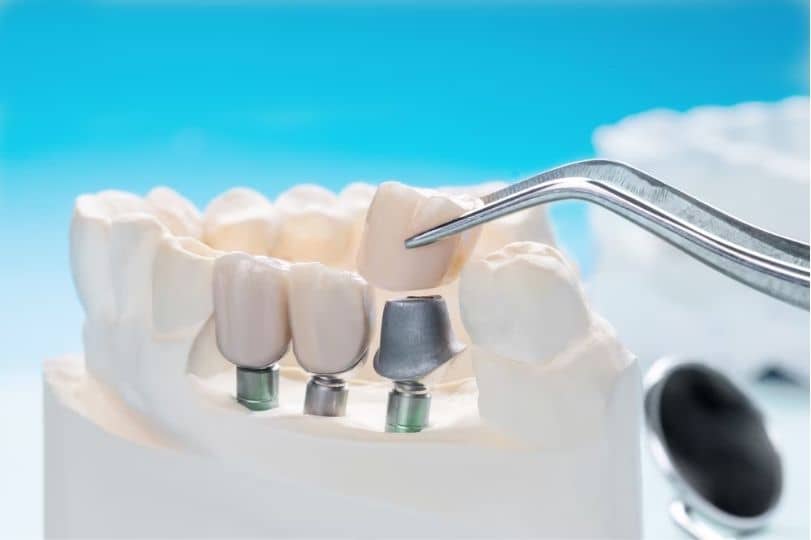
Dental implants are marvellous substitutes for missing teeth that guarantee a long-term remedy and look like natural teeth. But, without proper care, however, their duration might get shortened.
Whether it’s a new implant fitting or an old implant you have had for years, good maintenance is an important priority.
Patients who have just had implants might ponder the next steps that they should take if they have had dental implants near Windermere.
Many patients worry about what they must do for themselves to avoid future complications. We completely understand; this is more than just a tooth replacement; it is about safeguarding your investment.
This article will guide you through some simple yet practical measures to be taken to ensure the longevity of your dental implants. Included are cleaning protocols, dietary habits, and long-term considerations for people with busy lifestyles.
Why Care for Dental Implants?
In terms of strength, titanium and porcelain truly come neck and neck for the dental implants. Then, gum disease and wear-withstanding abilities have no second value here.
The one big opportunity you have lies in caring for your implants, as inflammation may set in or develop into implant failure. However, the good news is that just a few minutes of work each day will do wonders.
Let’s check 10 small activities you should do daily to keep your implants healthy.
10 Easy Tips to take care of your Dental Implants
1. Practice Proper Oral Hygiene Daily
Implants require regular brushing and flossing, just like natural teeth. Here’s the proper way to accomplish it:
- Use a soft-bristled toothbrush to brush at least twice a day.
- To prevent scratching the crown, choose toothpaste that isn’t too harsh.
- To get rid of food residue and plaque, lightly floss the area surrounding the implant.
- For more thorough cleaning, think about utilizing a water flosser or an interdental brush.
2. Know the Long-Term Care of Dental Implants
One of the most important aspects of maintaining implants is understanding the long term care of dental implants. This includes:
- Scheduling regular dental check-ups every six months.
- Getting professional cleanings to avoid plaque buildup.
- Monitoring the health of surrounding gums and tissues.
- Avoiding habits like teeth grinding or chewing on ice.
Consistency is key. Long term care doesn’t have to be complicated; it’s just about keeping a simple routine.
3. Be Careful After Surgery
Understanding how to take care of dental implants after surgery is vital for recovery and implant success. Here are some tips:
- Eat soft foods for the first few days.
- Avoid hot drinks and smoking as they delay healing.
- Wash them with warm salt water to soothe the gums.
- Take prescribed medications and follow your dentist’s instructions closely.
It’s natural to feel a bit of discomfort post-surgery, but taking these steps will reduce risks and speed up healing.
4. Avoid Foods That Can Damage Implants
While implants are strong, they aren’t indestructible. Try to limit or avoid the following:
- Hard candies
- Sticky or chewy foods
- Ice cubes
- Tough meats
- Sugary snacks
A balanced diet that supports gum health will benefit your implant longevity.
5. Keep an Eye on Your Gums
Even if your implant feels fine, inflammation or bleeding gums could be a sign of early peri-implantitis, a condition similar to gum disease. Watch for:
- Swollen or red gums around the implant
- Bleeding when brushing or flossing
- Bad breath that doesn’t go away
If you notice any of these, visit your dentist right away. Early treatment can save your implant.
6. Wear a Night Guard If Needed
If you grind your teeth at night (a condition called bruxism), it can damage your implants. Ask your dentist about a custom night guard to protect your teeth and implant work while you sleep.
7. Quit Smoking
Smoking affects blood flow to the gums and increases the risk of implant failure.
If you’re a smoker, talk to your healthcare provider about support options to help you quit. Your dental health and overall health will thank you.
8. Use Implant-Friendly Products
There are specific products made to clean and protect implants, including:
- Low-abrasion toothpaste
- Soft interdental brushes
- Alcohol-free mouthwash
- Silicone-tipped tools for gentle gum care
Using the right tools makes maintenance easier and safer for your implant.
9. Listen to Your Body
Pain, discomfort, or swelling shouldn’t be ignored. Even if it seems minor, reporting symptoms early helps prevent complications. You know your body best, so speak up if something feels off.
10. Keep a Routine
Perhaps the most underrated but effective method is sticking to a routine. Brushing, flossing, avoiding harmful foods, and regular check-ups may seem simple, but they all work together to extend the life of your dental implants.
Below is a list of a few dos and don’ts you should focus on when taking care of your dental implants.
Dos and Don’ts for Implant Care
| Dos | Don’ts |
| Brush twice a day | Use abrasive toothpaste |
| Floss or use a water flosser daily | Chew on hard items like pens or ice |
| Visit your dentist regularly | Skip check-ups or cleanings |
| Use antimicrobial mouthwash | Smoke (especially after surgery) |
| Eat a balanced diet | Eat sugary or sticky foods frequently |
Wrapping Up!
When you take care of your implants, you’re not just maintaining a tooth; you’re preserving your confidence, comfort, and health.
Simple habits like brushing, regular checkups, and watching what you eat can protect your smile for years.
If you need help managing your implants or have questions, it’s always best to consult a professional.
Our dentist in Ambleside is experienced in implant care and committed to helping patients achieve long-lasting results.
Strong care, stronger smile, lasting confidence.
Whether you’re newly implanted or maintaining implants from years ago, our team is here for you.
